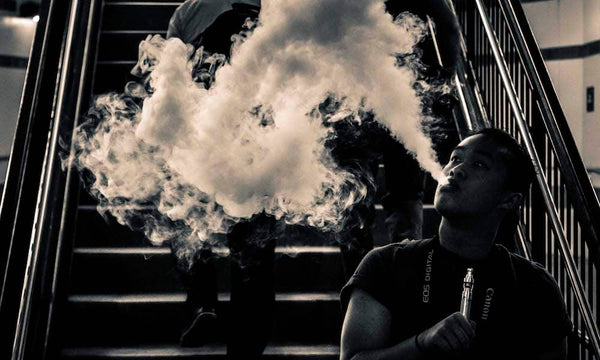The remaining legal vapes will be subject to a 75 percent tax.
After months of grappling with how best to address the health costs of vaping, Massachusetts lawmakers have opted to ban the sweet (and minty) stuff. On Thursday, members of the state’s House of Representatives voted to prohibit the sale of flavored tobacco and vape products. The vote was handed down shortly before the members of Congress broke for the holidays.
And that’s not all. The vaping products that remain legal will be subject to a whopping 75 excise tax.
The vote marks the first time such a statewide prohibition has been enacted in the United States, although San Francisco lawmakers banned the sale of all vaping products earlier this year. Other states have enacted temporary bans on certain products, as in the case of Oregon, where a prohibition was overturned by the courts that would have blocked the sale of flavored cannabis vaping products.
The legislation will now go to the desk of Governor Charlie Baker, who has already established himself as an advocate for limiting access to vaping. In October, he enacted an emergency four-month ban on all vaping products in a move that was deemed outside his authority by a judge. The decision was handed over to Massachusetts’ Cannabis Control Commission, which opted to quarantine all cannabis vaping products, save for those that use flower. Later, a judge lifted the ban for medical marijuana patients.
The flurry of prohibition was largely catalyzed by a rash of vaping-related lung injuries that has so far claimed 47 lives, according to the Centers for Disease Control.
Vaping companies have also been the subject of recent lawsuits, including lawsuits filed by California and North Carolina state officials against leading vape company Juul. New York Attorney Letitia James announced that the state was suing the company, citing what she calls a coordinated marketing campaign targeting teens.
A National Youth Tobacco survey found that 4.1 million students nationwide vape, including one-third of high school students in New York State. The nationwide vaper figure stands at 1.2 million among middle school students.
Perhaps in response to such allegations of the targeting of young people, Juul announced earlier this month that it would no longer be selling its popular mint-flavored products. The decision was made after a government survey.
If signed, the Massachusetts bill will go into effect immediately for flavored products and on June 1 for menthol cigarettes. It also mandates that health insurance companies fund tobacco cessation counseling.
“This legislation is a critical step to help end the worsening youth e-cigarette epidemic and stop tobacco companies from using appealing flavors to lure kids into a lifetime of addiction,” said president of the Campaign for Tobacco Free Kids Matthew Myers in a written statement. “It would make Massachusetts the first state in the nation to prohibit the sale of all flavored tobacco products.”
Not everyone was pleased, however. “We are disappointed the legislature supports bills that disproportionately impact communities of color and have disastrous implications for public health, public safety, state tax revenue and jobs in the Commonwealth,” said Jonathan Shaer, president of the New England Convenience Store Owners and Energy Marketers Association, in a statement.
By


